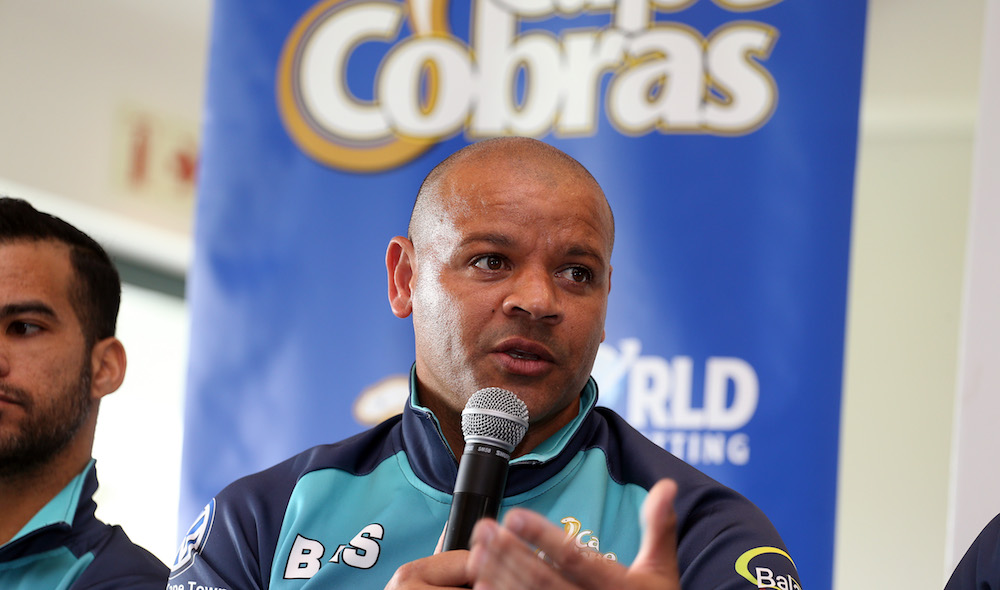Ashwell Prince’s gut-wrenching testimony at the Cricket for Social Justice and Nation Building hearings raised complex issues that left one feeling helpless, but rolling over is not an option, writes RYAN VREDE.
This week, Prince recounted his experience of prejudice and racism during and after his career. It cut to the heart.
One could reasonably assume that these types of incidents, whether conscious or not, would form part of some black players’ experience in South African cricket.
However, Prince described what felt like a culture, not simply isolated incidents, made worse yet by the fact that many of the alleged perpetrators were some of the country’s elite players at the time.
He remembered an incident in a meeting following defeat by Australia at the 2007 World Cup. “One of the players muscled up the confidence to say one of the problems we have is the quota system,” Prince said. “One or two others gained a bit of confidence and others then latched on to that and said that’s the problem in our cricket. People were talking and five or six players said the same thing.”
Prince says that he rebuked them strongly, explaining that he was ready for his international career to be over as a result of his stance. It didn’t end. In fact, Prince continued to be a fixture in one of the most successful Proteas Test teams of all time.
Tellingly, though, he described his international career as “lonely”.
“A person knows when a person is welcome and you know when you are not welcome,” he added.
This broke my heart and made me yearn for a time when our cricket would be united by a common humanity. The SJN hearings have exposed how far we are from that, but I choose to believe that the majority of South Africans share a vision of a better future.
I’ve been skeptical of the motives of those who’ve used the hearings to try to paint their implication in/conviction of match-fixing as being rooted in racial prejudice. I have no such skepticism regarding Prince’s motives. No skepticism, only sadness. Sadness that something fundamentally intended for good – the quota system – was at the heart of such bitterness and resentment.
Prince’s testimony did, however, include strong criticism of the quota system.
“Cricket SA might have a picture in their mind of a team that has so many white players, so many black players, then ‘We feel we have the perfect transformation mix’.
“The problem with that is if you continue to pick players who are performing to a lower level than other players but those other players cannot get in the team because they are not the right colour, you are going to forever have a problem,” he said.
I’ve written extensively that this approach is doomed to fail. I’ve argued that the focus must be creating equal opportunities (or as equal an opportunity as possible) for players at every level of the game. I’ve argued that the gap between Sipho in Soweto and Simon in Sandton is too wide in every critical way to reasonably expect black players to emerge naturally.
Cricket South Africa is failing at one of its primary mandates.
Prince argued that this failure was exposing black players to extreme stress, which is crippling their transformation plan. “The policymakers that sit in offices, in high positions, I don’t think they appreciate the amount of abuse, mental and verbal abuse, that players face, from their own teammates or the opposition – even on the international stage.”
There are some who’ll rise above the abuse, as Prince did. The majority will be fundamentally broken by it, given that the nature of such abuse seeks to break not only one’s spirit, but crushes self-worth, self-belief and eviscerate that player’s very humanity.
Surely CSA doesn’t think sacrificing many for a few is a legitimate transformation strategy?
I believe the SJN hearings can be healing if we allow them to be. I think it could be the catalyst for lasting change in South African cricket if an emphasis is placed on listening to understand and not to react. The path to that place will be hard, but it is possible.
Talking, however, won’t be enough. The irony of CSA setting up these SJN hearings is that it has exposed one of its worst failings – that they’ve exposed the players who they were meant to uplift to dehumanisation.
Of course, CSA can’t take responsibility for the few who choose to act on their racist inclinations. But they have a responsibility to protect the players they are seeking to advance.
There’s a lot that won’t get resolved at the SJN hearings. The players Prince has implicated, among them Graeme Smith, AB de Villiers, Paul Harris and Jacques Rudolph, will have the right to reply. As will other white players implicated in incidents of alleged racism or racial prejudice by those black players who’ve testified. The likelihood is that they will deny any conscious attempts to undermine black players. In the absence of irrefutable evidence, no significant action can be taken.
But CSA can control its transformation plan and Prince’s assessment of it must be unpacked and used as a point of departure for a new way. That way must seek to eliminate the random nature of a black player’s rise. Most critically, that way must build belief, not expose black players to accusations that could break them.







